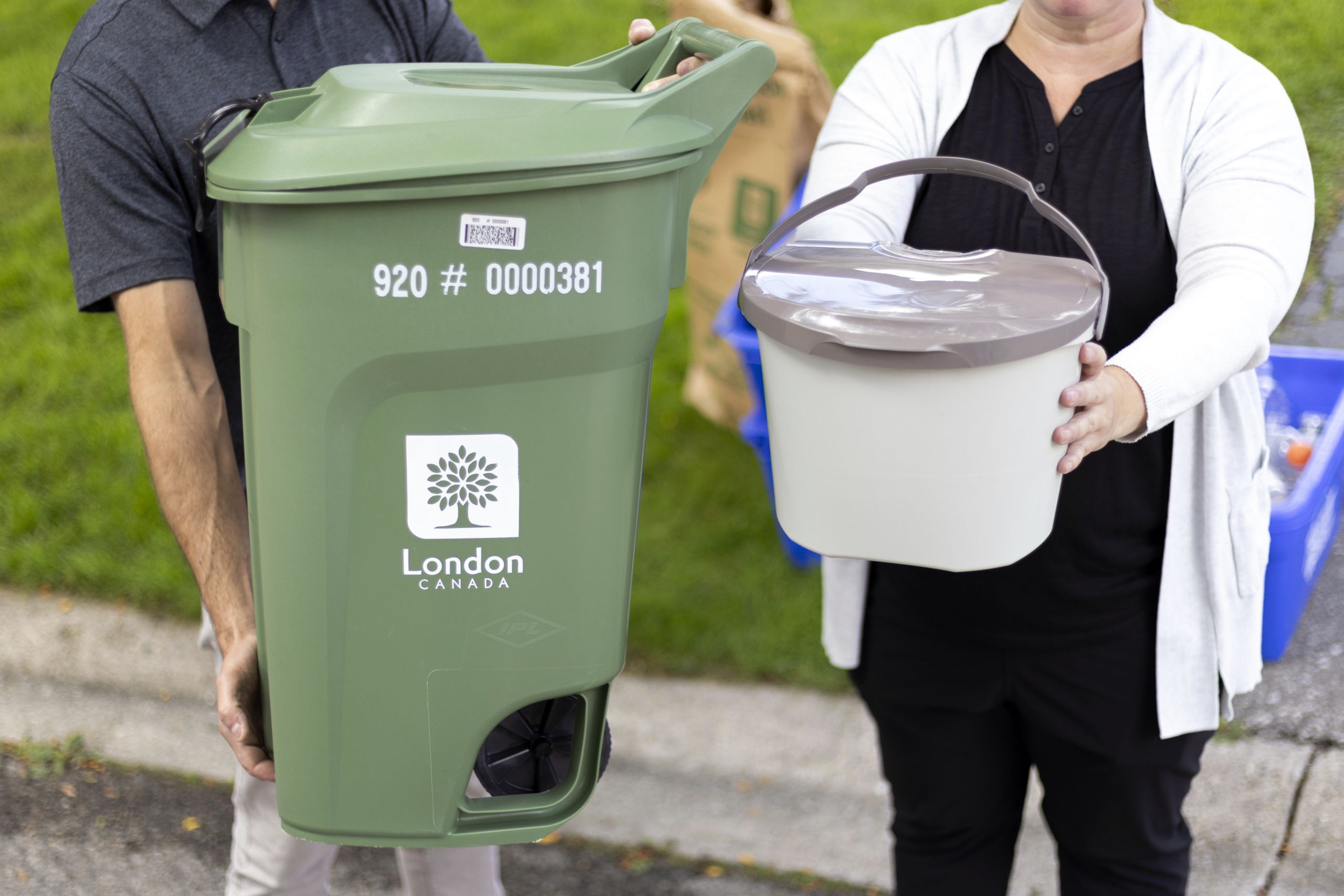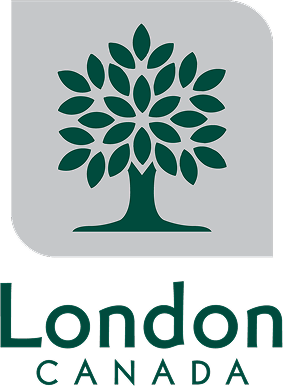What is a Green Bin?
A Green Bin is like a blue (recycling) bin, but for food waste such as fruit and vegetable skins, spoiled leftovers, and other inedible food waste like bones. The Green Bin is collected curbside or in a common area like your Blue Box and the materials are composted at a facility in London.
A summary of resident feedback that was requested between January and June 2024 can be found in Appendix A (page 5) of the Report to Civic Works Committee (July 16, 2024).
Please also visit london.ca/GreenBin for more information about how to use the Green Bin.
 Above: A Green Bin and Kitchen Container have been delivered to curbside homes.
Above: A Green Bin and Kitchen Container have been delivered to curbside homes.
Questions and Comments
To ask a question you must create an account or log in.
These are the people that are listening and responding to your questions.
The Project Team
{{question.description}}




